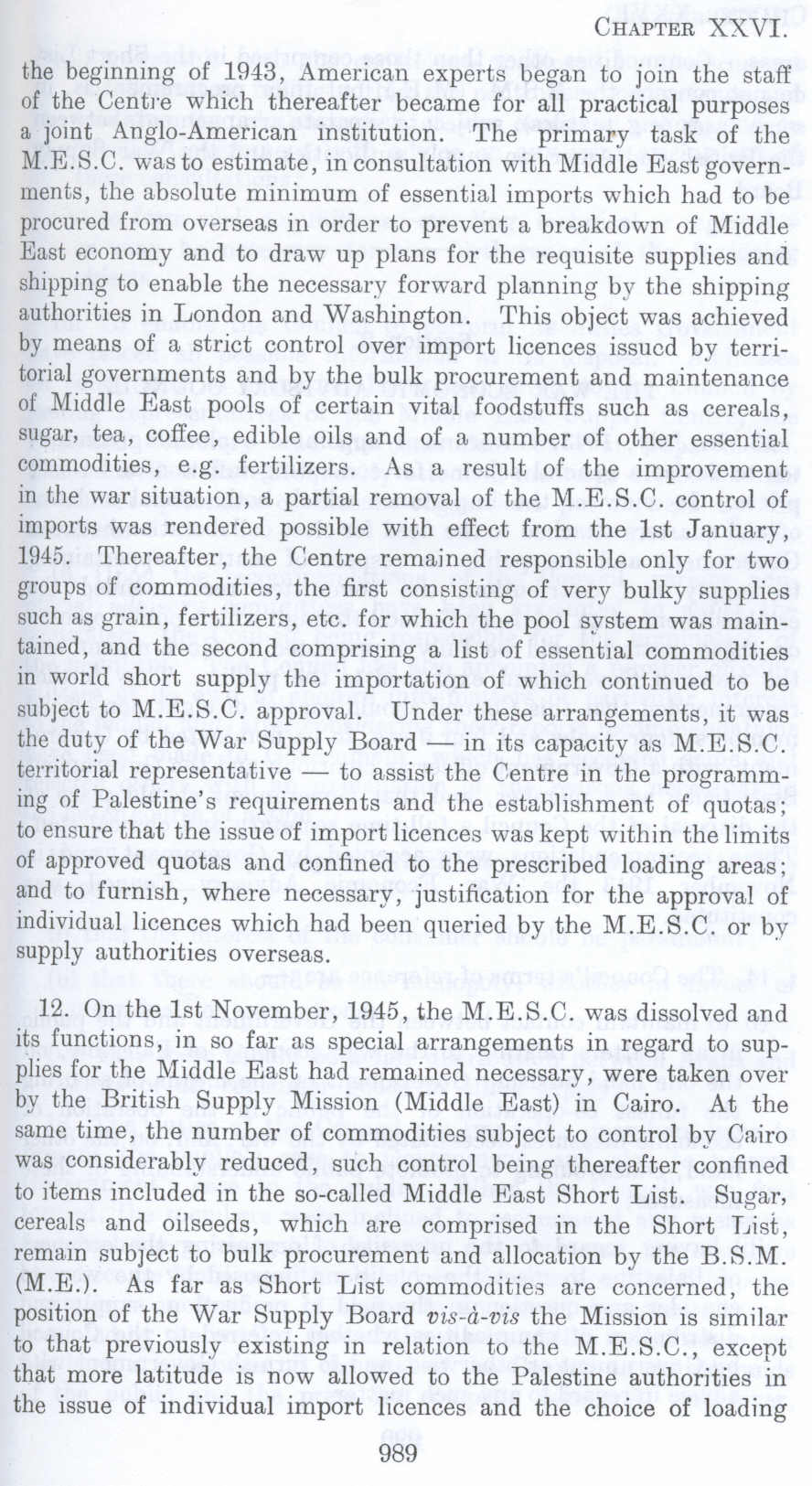| Prev | Next |  |
| Prev | Next |
| PalestineRemembered | About Us | Oral History | العربية | |
| Pictures | Zionist FAQs | Haavara | Maps | |
| Search |
| Camps |
| Districts |
| Acre |
| Baysan |
| Beersheba |
| Bethlehem |
| Gaza |
| Haifa |
| Hebron |
| Jaffa |
| Jericho |
| Jerusalem |
| Jinin |
| Nablus |
| Nazareth |
| Ramallah |
| al-Ramla |
| Safad |
| Tiberias |
| Tulkarm |
| Donate |
| Contact |
| Profile |
| Videos |
British Mandate: A Survey of Palestine: Volume II - Page 989 |
Disclaimer
The above documents, article, interviews, movies, podcasts, or stories reflects solely the research and opinions of its authors. PalestineRemembered.com makes its best effort to validate its contents.


Post Your Comment
*It should be NOTED that your email address won't be shared, and all communications between members will be routed via the website's mail server.
the beginning of 1943, American experts began to join the staff of the Centre which thereafter became for all practical purposes a joint Anglo-American institution. The primary task of the M.E.S.C. was to estimate, in consultation with Middle East governments, the absolute minimum of essential imports which had to be procured from overseas in order to prevent a breakdown of Middle East economy and to draw up plans for the requisite supplies and shipping to enable the necessary forward planning by the shipping authorities in London and Washington. This object was achieved by means of a strict control over import licences issued by territorial governments and by the bulk procurement and maintenance of Middle East pools of certain vital foodstuffs such as cereals, sugar, tea, coffee, edible oils and of a number of other essential commodities, e.g. fertilizers. As a result of the improvement in the war situation, a partial removal of the M.E.S.C. control of imports was rendered possible with effect from the 1st January, 1945. Thereafter, the Centre remained responsible only for two groups of commodities, the first consisting of very bulky supplies such as grain, fertilizers , etc. for which the pool system was maintained, and the second comprising a list of essential commodities in world short supply the importation of which continued to be subject to M.E.S.C. approval. Under these arrangements, it was the duty of the War Supply Board - in its capacity as M.E.S.C. territorial representative - to assist the Centre in the programming of Palestine's requirements and the establishment of quotas; to ensure that the issue of import licences was kept within the limits of approved quotas and confined to the prescribed loading areas; and to furnish, where necessary, justification for the approval of individual licences which had been queried by the M.E.S.C. or by supply authorities overseas.
12. On the 1st November, 1945, the M.E.S.C. was dissolved and its functions, in so far as special arrangements in regard to supplies for the Middle East had remained necessary, were taken over by the British Supply Mission (Middle East) in Cairo. At the same time, the number of commodities subject to control by Cairo was considerably reduced, such control being thereafter confined to items included in the so-called Middle East Short List. Sugar, cereals and oilseeds, which are comprised in the Short List , remain subject to bulk procurement and allocation by the B.S.M. (M.E.). As far as Short List commodities are concerned, the position of the War Supply Board vis-a-vis the Mission is similar to that previously existing in relation to the M.E.S.C., except that more latitude is now allowed to the Palestine authorities in the issue of individual import licences and the choice of loading
989